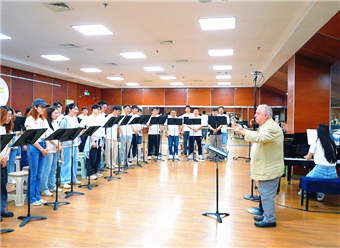Taicang's annual mutton festival
The small Taicang town of Shuangfeng in Jiangsu province has a deep-rooted culture of enjoying mutton dishes on particularly cold winter days.
Shuangfeng mutton has earned a reputation for its tender taste, marbled texture, rich flavors and thick broth. Legend has it that Chef Meng opened a noodle restaurant in Shuangfeng town around 100 years ago and single-handedly made mutton noodles the town's specialty.
 |
|
Mutton noodle soup can dispel the winter chill and warm you up during the cold winter months. [Photo/Taicang Daily] |
Different from mutton feasts in North China that usually feature a whole roasted lamb, Shuangfeng mutton dishes focus more on using cooking methods that bring out the most flavor from the meat, such as braised mutton in soy sauce, stir-fried sweetbread, roasted gigot, and boiled sliced mutton.
A combination of local rice wine and braised mutton are an excellent choice to keep the cold at bay in winter.
Arguably the best way to experience the culture is at the Shuangfeng mutton festival. The ninth iteration of the event began in December 2016 and will last until the end of February 2017, offering visitors a chance to experience the town's proud culinary culture.
 |
|
Taicang's annual mutton festival has become a staple of the waterside city, attracting tourists from nearby cities like Suzhou and Shanghai. [Photo/Taicang Daily] |
As part of the festival, dozens of restaurants competed in a cooking competition on the waterside terrace at the town's Gorgeous Phoenix Resort. Visitors marveled at the complexity of the cooking skills demonstrated during the competition and were inspired by the innovative cooking methods.
 |
|
Traditional art performance of music and dance is displayed during Taicang's mutton festival. [Photo/Taicang Daily] |
Accompanying the mutton dishes are various folk performances, including farce, Yue Opera, lion and dragon dances, as well as pingtan, an old art of storytelling and ballad singing in the Suzhou dialect.









